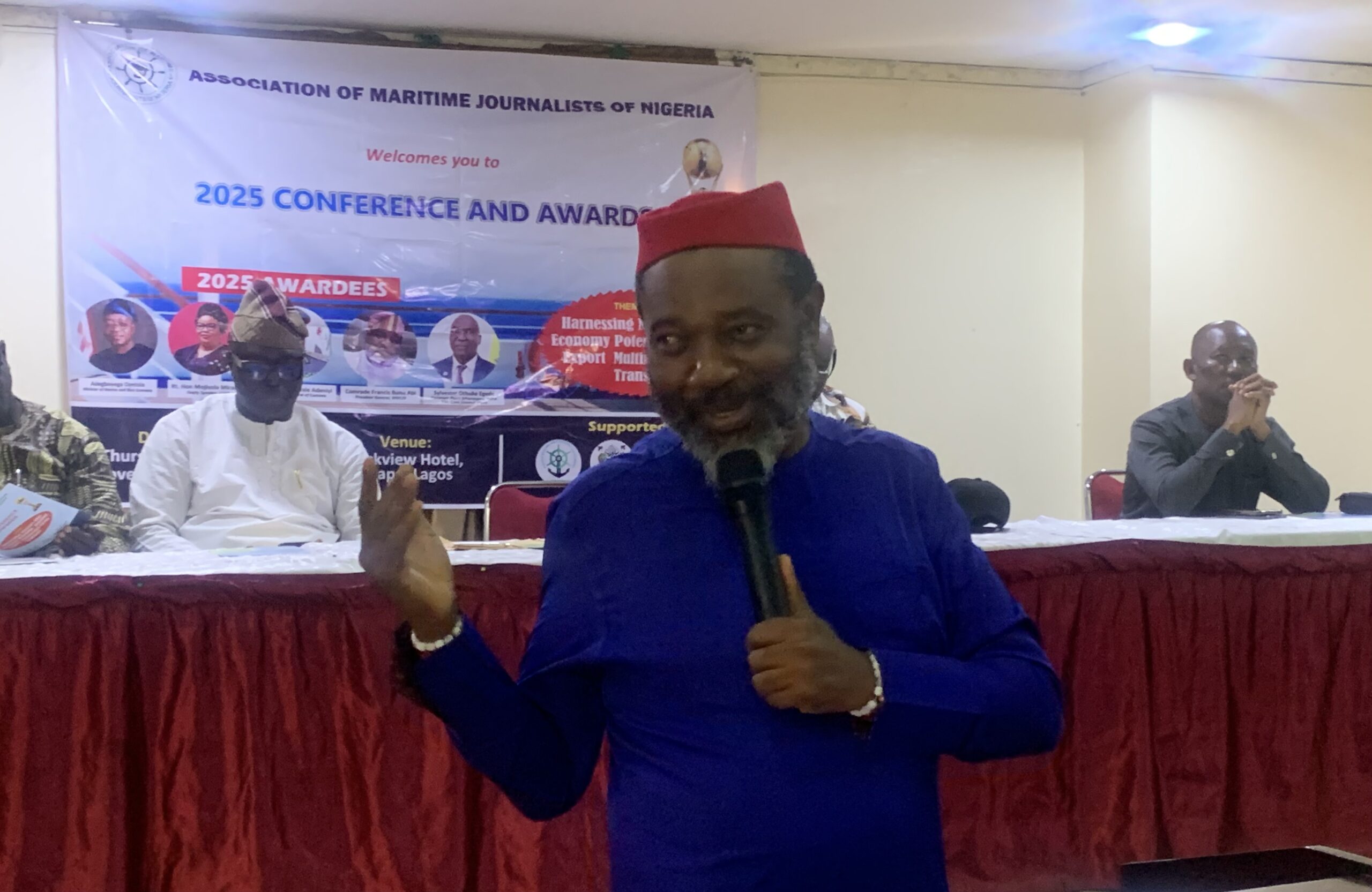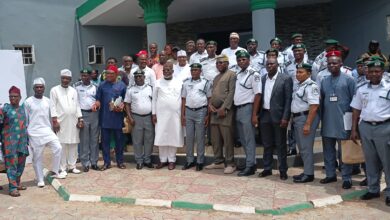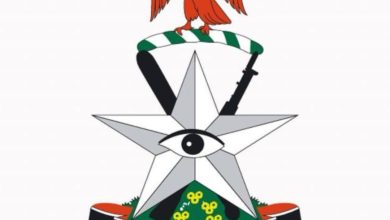
The Head of Research at the Sea Empowerment and Research Centre (SEREC) , Chief (Dr.) Eugene Nweke, Rff, has called for stronger collaboration, modernisation, and policy consistency to unlock Nigeria’s vast Blue Economy potential and reposition the maritime sector as a major driver of economic diversification.
Nweke who was the Chairman of the 2025 Annual Conference and Awards Ceremony of the Association of Maritime Journalists of Nigeria (AMJON), while delivering his opening remarks, stated that the maritime industry holds enormous opportunities for job creation, industrial development, and export expansion, but remains underutilised due to infrastructural and policy gaps.
He noted that the theme of the conference, “Harnessing Nigeria’s Blue Economy Potential, Boosting Export Trade and Multimodal Cargo Transport” was timely and transformative, aligning with the Federal Government’s economic diversification drive and the global transition towards sustainable ocean based economies.
Nweke emphasised that realising the benefits of the Blue Economy requires strengthening synergy between the public and private sectors, modernizing port operations through automation, and expanding intermodal connectivity across rail, road, and waterways.
He commended AMJON for maintaining its reputation as a credible voice in the maritime sector, noting that the Association continues to play a vital role in bridging the gap between government policy, industry performance, and public awareness.
In his paper presentation titled “The Essentials of Public–Private Synergy for Optimal Marine & Blue Economy Policy Implementation” he emphasized that Nigeria’s vast maritime potential spanning an 853 km coastline, 3,000 km of inland waterways, and a 200 nautical mile Exclusive Economic Zone remains largely underutilized, contributing less than 1.5% to the regional maritime GDP despite its strategic position as West and Central Africa’s shipping hub.
According to Nweke, PublicPrivate Synergy goes beyond conventional PPPs; it is a developmental alliance where government, investors, academia, and communities co-create, co-finance, and co-monitor Blue Economy initiatives. He noted that this synergy must be anchored on trust, transparency, and technology to deliver measurable outcomes.
Highlighting key pillars of the Blue Economy, he identified fisheries, shipping and logistics, coastal tourism, marine energy, and research governance as major value chains capable of generating billions of dollars annually and creating thousands of jobs if properly structured under a PPS model.
He disclosed that while Nigeria spends over US$1 billion annually importing fish to bridge a 2.1 million-tonne supply gap, effective partnerships in aquaculture, cold-chain logistics, and processing could create more than 500,000 jobs. He also estimated that port automation and multimodal transport integration could save Nigeria up to ₦3 trillion yearly in trade costs.
Nweke further connected the steel, mining, and agriculture sectors to the Blue Economy, describing them as circular linkages that can power industrial growth. He proposed the revival of the Ajaokuta Steel Mill to supply marine-grade steel for shipbuilding, port infrastructure, and rail fabrication a move that could strengthen Nigeria’s industrial base and reduce import dependence.
He also underscored the importance of digital infrastructure, noting that the National Single Window (NSW) and International Cargo Tracking Note (ICTN) are key enablers of trade transparency, revenue assurance, and investment confidence. Their full implementation, he said, could save the nation over ₦500 billion annually and curb cargo under-declaration.
Nweke proposed the establishment of a National Blue Economy Council (NBEC) chaired by the Vice President, the enactment of a Blue Economy Investment Code, and the creation of a Public Private Blue Economy Implementation Roundtable (PBBIR) to track investments, compliance, and job outcomes quarterly.











https://t.me/s/iGaming_live/4866